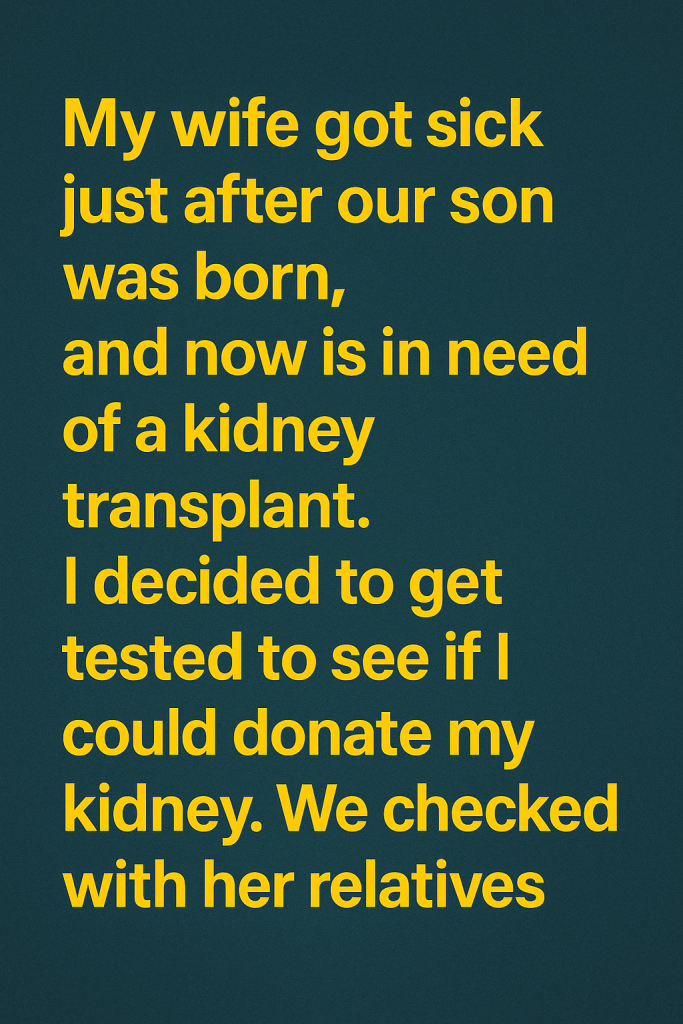A man’s heartfelt decision to potentially donate a kidney to his ailing wife unexpectedly led to a life-altering medical discovery, highlighting the complex and sometimes hidden risks involved in organ donation screening.
Earlier this year, a husband undertook the routine medical evaluations necessary to determine if he was a suitable kidney donor for his wife, who has been battling chronic kidney disease. What began as an act of love and hope soon turned into a startling revelation about his own health.
Thorough medical tests are standard protocol before any organ donation to ensure the donor’s safety and the viability of the transplant. During these assessments, the husband underwent blood tests, kidney function scans, and detailed imaging studies. While his initial tests appeared promising, further evaluation uncovered unexpected abnormalities requiring urgent investigation.
Doctors informed the man that certain biomarkers and imaging results suggested early signs of a serious, previously undiagnosed kidney condition—one that could potentially impair his renal function if left unmanaged. This diagnosis was entirely surprising to him, as he had no prior symptoms or known history of kidney issues.
“It was shocking,” the man explained. “I was focused entirely on helping my wife, and suddenly I was faced with a health crisis of my own.”
Medical experts say this scenario, while uncommon, is not unheard of. Kidney donation screening is rigorous and sometimes uncovers hidden health concerns, providing donors with a critical early diagnosis they might otherwise have missed. In some cases, prospective donors are found to have subtle kidney diseases, hypertension, or other conditions that disqualify them from donating but provide a vital chance to begin treatment sooner.
The man’s wife expressed mixed emotions: relief that her husband’s condition was caught early, but heartbreak over the delay this meant for her own treatment. Kidney transplants can be life-saving, and delays can impact transplant success and quality of life.
Currently, the husband is being closely monitored and undergoing treatment to stabilize his kidney function. Medical teams are exploring alternative transplant options for his wife, including possible donor matches from unrelated donors or living donor registries.
This case underscores several important points: organ donation is an incredibly generous act, but it requires comprehensive health screening that can have unexpected consequences. It also highlights the importance of regular health checkups—even for seemingly healthy individuals—because silent conditions can exist unnoticed.
Healthcare professionals urge anyone considering organ donation or facing chronic disease to pursue thorough evaluations and maintain open dialogue with their medical teams. Early detection saves lives, sometimes in surprising ways.
For this couple, the ordeal has been a test of resilience and love. While the path forward includes challenges, the unexpected diagnosis may ultimately offer a silver lining by protecting the health of the donor and helping the family make informed decisions about care and transplantation.
As kidney disease and organ shortage continue to affect millions worldwide, stories like this bring attention to the complexities behind transplantation and the profound human stories involved.



